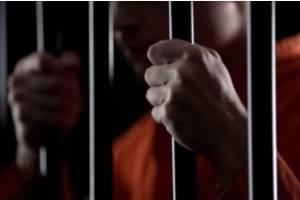Multiple DWI Convictions Can Add Up to Longer Prison Sentences
 A Texas man was recently sentenced to 65 years in prison after his ninth conviction for driving while intoxicated. The defendant was charged following a single-car accident, during which he allegedly had a 0.263 blood alcohol concentration. While this may seem like severe punishment for an incident in which no one was harmed, it is not unusual in Texas. Courts have issued life sentences to offenders who had a history of repeated DWI convictions. Judges usually rationalize the harsh sentences by describing the defendant as a habitual offender who has shown that they will not change their behavior and will continue to be a danger to others. Being convicted for multiple DWI offenses not only enables courts to issue more severe punishments but may also motivate a judge to utilize the full extent of those punishments.
A Texas man was recently sentenced to 65 years in prison after his ninth conviction for driving while intoxicated. The defendant was charged following a single-car accident, during which he allegedly had a 0.263 blood alcohol concentration. While this may seem like severe punishment for an incident in which no one was harmed, it is not unusual in Texas. Courts have issued life sentences to offenders who had a history of repeated DWI convictions. Judges usually rationalize the harsh sentences by describing the defendant as a habitual offender who has shown that they will not change their behavior and will continue to be a danger to others. Being convicted for multiple DWI offenses not only enables courts to issue more severe punishments but may also motivate a judge to utilize the full extent of those punishments.
Consequences of Multiple Convictions
One way that a DWI conviction can be a felony in Texas is if it is your third DWI conviction. According to Texas law:
- A third or subsequent DWI conviction is a third-degree felony, punishable by two to 10 years in prison.
- If you have previously served prison time for a DWI conviction, a third or subsequent DWI conviction is a second-degree felony, punishable by 2 to 20 years in prison.
- If you have been incarcerated twice for DWI convictions, a subsequent DWI conviction can result in 25 years to life in prison.
Even with a two-year-minimum prison sentence, it is possible to serve most of that time as probation. However, a court is less likely to allow probation if you have received a fourth DWI conviction or have other aggravating factors.
Questioning the Punishment
While a person who repeatedly commits DWI offenses is a problem, some people do not believe that sentencing them to long prison terms is the right solution. Some question why repeat offenders are still allowed to drive or are not required to use an ignition interlock device indefinitely. Others wonder whether Texas could offer better rehabilitation resources to treat the offenders’ likely problem with alcohol or drug abuse. Even if the offender becomes eligible for parole, a sentence of life in prison costs the state more than programs that may better prevent the prior offenders from driving while intoxicated.
Contact a San Antonio DWI Defense Attorney
If you have previously been convicted of DWI, you know that a subsequent DWI charge will be more serious. A San Antonio DWI defense lawyer at the Law Offices of Sam H. Lock believes that people accused of DWI deserve strong representation and a chance to avoid conviction. To Schedule your consultation, call 210-226-0965.
Source:
https://www.gainesvilleregister.com/news/local_news/man-gets-years-on-th-dwi-conviction/article_56c0e450-47a8-11ea-abef-e7a44649c4cb.html





